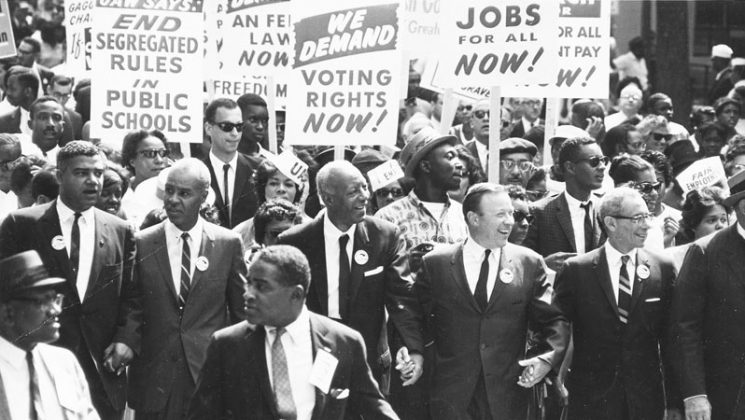We stand on the shoulders of giants. For more than 200 years, unions have united working people to achieve change. So in 2019, what should we unite behind? With a Conservative government whose entire raison d’etre seems to be to make the world a worse place, it can be hard to know where to start.
UNISON’s campaign objectives are chosen by our activists in a democratic process at our conferences. However, the tactics we employ and the priority we give to such a vast workload still needs to be tailored to national, regional and branch local priorities.
It’s also the case that issues can arise from the grassroots, or unexpectedly, to which we need to react quickly.
So here are a few tips to help you make the initial decisions about what to campaign on.
Assess the issue
- Does it have resonance? Public sentiment isn’t everything – you can build understanding and sympathy – but it will make winning much easier.
- Is it timely? Urgency and momentum are crucial factors in spurring action.
- Will people listen to us? Do we have power or credibility in relation to the issue? If we can articulate and illuminate our members’ professional or personal experience, for example, it gives our perspective authority.
- Does it impact on our members? If not, why is it a campaign we should prioritise? Which leads us into our next point …
- Is there a moral imperative? Is it something that, despite not directly affecting members, they may want to take a stand on?
- Check if someone else has already taken up the mantle. If so, maybe we can turn our attention to an undefended area. Or consider working in partnership with those already campaigning on the issue: many hands make light work.
What’s the goal?
- Setting a clear goal or tight, defined objectives is the most important exercise in any campaign. You need to know what you want if you’re going to co-opt people to your cause.
- If you don’t know how or when your campaign would end, that’s a problem.
- Who can deliver this change? Will they listen to us? If not, is there someone they will listen to who we’d be happy to work with or recommend?
- Is it achievable? Something as big as world peace, for instance, probably needs to be broken down into incremental steps.
How will we win?
Devising a strategy to win is the hard bit. Don’t confuse this with the tactics or activities you will plan into a timeline – that comes later.
The strategy needs to be the fundamental thing you will do to achieve the goal. For example: leveraging public opinion by a series of media spots to convince the decision-maker that they need to support our goal.
The ‘theory of change’ campaigning model is popular with charities and NGOs and can be a practical approach. It involves building a comprehensive description and illustration of how and why a desired change is expected to happen in a particular context – mapping out or ‘filling in’ the ‘missing middle’ between campaign activities and what we want to achieve.
Positive and pragmatic
Now the hard question – if you decide it’s unlikely you can win, should you still campaign? Perhaps you can do something that requires fewer resources, but still highlights our opposition. Or maybe you can redefine the goal, in order to devise a more achievable strategy.
Above all, in all your campaign planning be positive and be bold. You should never forget that we are an organisation of 1.3 million workers.
The tactics at our disposal to win change are significant and varied. We campaign and win year after year – and we will continue to do so.
Find out more about UNISON’s national campaigns


